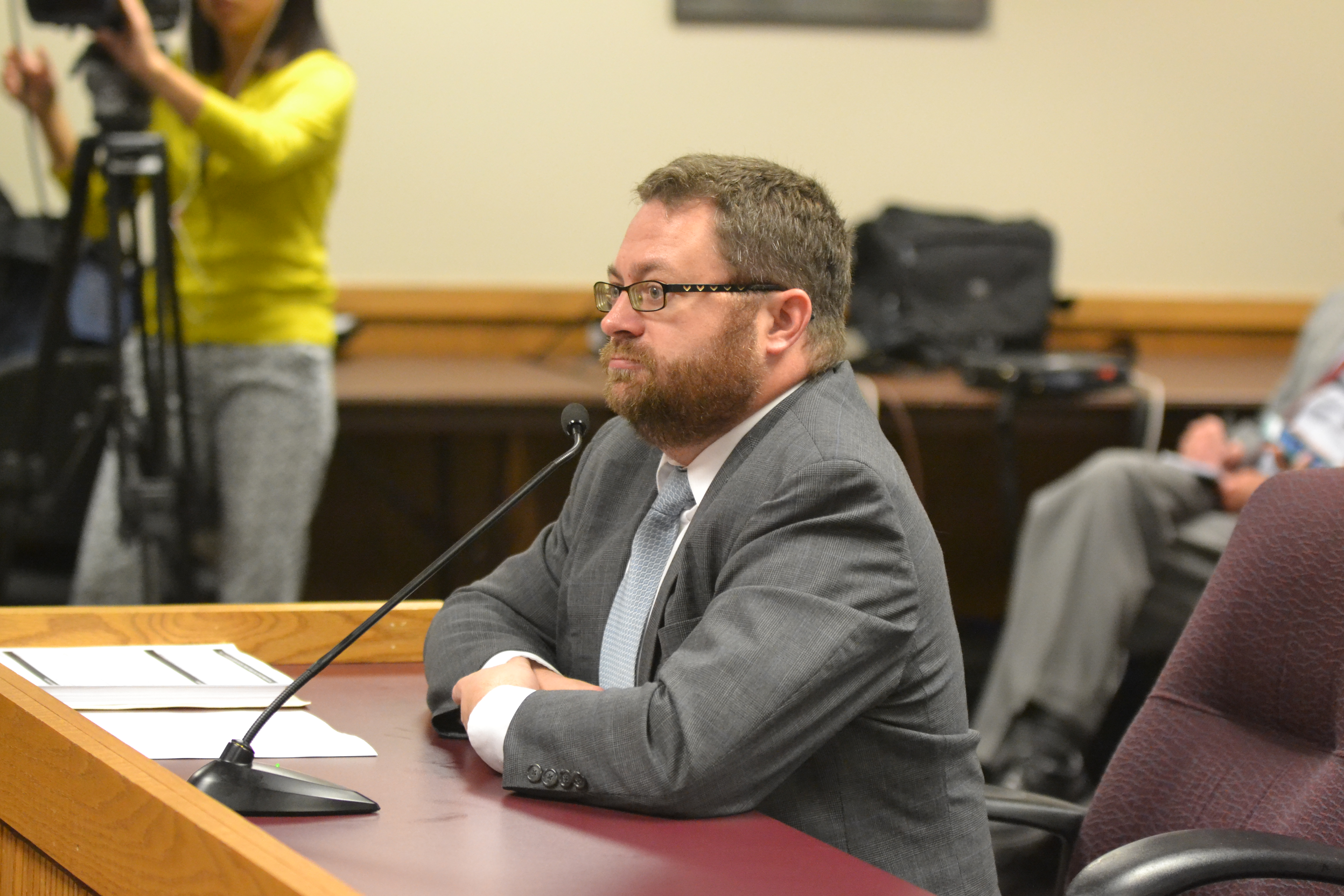JEFFERSON CITY, Mo. – After just under two hours of discussion and testimony Thursday, the House Administration and Accounts Committee voted to approve three of the four policy recommendations from the office of Speaker Todd Richardson, R-Poplar Bluff.
While they passed over a House rule change, Committee Chair Mike Leara, R-St. Louis, made motions to adopt the sexual harassment policy changes, a prohibition on amorous and romantic relationships and the new internship policy as published.
“We need to enhance our sexual harassment policy and our intern policy so that we can begin session with these rules firmly in place and everybody knowing what they have to follow,” Leara said after the hearing.
However, the two Democrats on the committee had some reservations about forward so quickly. Rep. Pat Conway, D-St. Joseph, and Rep. Michele Kratky, D-St. Louis, each encouraged more discussion after hearing testimony from Reps. Kip Kendrick, D-Columbia, and Jay Barnes, R-Jefferson City, as well as Taylor Hirth, a former intern of former Sen. Paul LeVota who endured sexual harassment from him during her tenure at the Capitol.
Conway voted in approval of the recommendations, but Kratky voted against the sexual harassment policy changes and the prohibition on relationships.
“I just think there needs to be some more tweaking done to it, and if I don’t think that the bill or anything else is right, I don’t want to vote on it until it’s appropriate,” Kratky said. “‘Just go ahead and pass it, okay, then we’ll change it later.’ I don’t know that that’s the right way to legislate.”

Leara said during the hearing that members of the committee had ample opportunity to present their own suggested changes after having the recommendations in writing for months, but Kratky believed that testimony may have added to or influenced possible recommendations. She and Conway both asked for more time to “digest” the hearing.
Leara wanted to move forward to get something in the books.
“We need these policies in place as soon as possible,” he said during the hearing. “I have not heard anything today that would say do not move forward with this.”
“I believe this is a base that we had to have in place well before session began,” he noted after its conclusion, adding that he was open to possible changes to the adopted policies, especially in regards to mandatory reporting of perpetrators of sexual harassment. “There has to be a happy medium here, and I believe we have to begin with enhancing the policies that I believe did not go far enough until this proposal came about.”
The subject of mandatory reporting faced the most inspection on the day when Hirth testified that it could reveal information about the victims of sexual harassment, noting that people in the Capitol could easily piece together who a victim was if they knew the identity of the perpetrator.
“It is quite frankly an invasion of privacy,” she testified. “Things said in confidence need to remain in confidence because I did not want my name or face to be attached to someone else’s conduct.”
Hirth was concerned the board was so quick to adopt the mandatory reporting policy.
“I’m more concerned that the focus has been on interns this whole time when staff, lobbyists, visitors… and other legislators have probably experienced sexual harassment,” she added after I don’t think mandated reporting or changing the intern policy is going to close this problem that’s happening here in the Capitol.”
Rep. Barnes shared Hirth’s sentiment, saying that publicly releasing names may “take power away from the victim in these cases.
“Everyone’s goal here is the same and that is to protect interns and make sure their experience in this building is the best possible educational experience they can have,” he said in his testimony. “We need to make sure the interns feel comfortable if they come forward. The person about whom they are complaining is going to be a pillar of their community… There is a power discrepancy between the victims and the perpetrators.”
Kratky could understand Hirth’s argument, but she also saw the need to make sure the perpetrator was held accountable and investigated to ensure they did not repeat their offense – as LeVota is accused of doing.
“I like it that it should be mandatory, but then hearing from a person that actually was victimized and is afraid that their name is going to go. I can understand their fearfulness also. But we also need to know if somebody’s out there offending these interns, we need to take action. This shouldn’t be tolerable.”
Wendy Doyle, the president of the Women’s Foundation, also testified through a representative. She supported the changes.
“We believe these new policies will be a good first step toward improving the Capitol culture,” she said in a statement. “We are supportive of the General Assembly’s efforts to address reform, and we will remain diligent in our work of removing barriers that keep women from achieving their full economic and leadership potential.”









